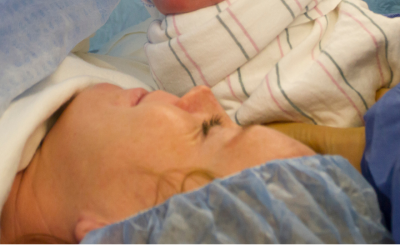1591366604.png)
Research News
Keeping current on all preeclampsia research

Peter Joseph Pappas preeclampsia research grant recipients' study titles and reports.

Melbourne, FL – January 30, 2020 – The Preeclampsia Foundation announced the recipients of its 2020 Peter Joseph Pappas Research Grants, a funding program designed to accelerate preeclampsia research. Based on the recommendations of...

Recent findings in preeclampsia research have shown that preeclampsia likely has at least two variants – an early onset and a late onset variant. Early onset is typically defined as before 34 weeks gestation and late onset is after 34 weeks ges...

Preeclampsia is a pregnancy complication marked by new-onset high blood pressure and signs of stress on organs such as the kidneys, liver, and brain. While much attention is often given to preterm disease, about 75% of preeclampsia cases occur at ter...

Preeclampsia is a serious problem that can happen during pregnancy. It often affects the brain and can cause headaches, vision problems, strong reflexes, and seizures (called eclampsia). In this study, researchers explored whether certain substances...

Pregnancy offers a unique window into a woman’s future heart and cardiovascular health. Conditions such as hypertensive disorders of pregnancy (HDP) which include gestational hypertension, preeclampsia (with or without severe features), and ecl...

Heart disease, also called cardiovascular disease (CVD), is becoming more common in young women across the United States. Hypertensive disorders of pregnancy (HDP) is a group of conditions that include high blood pressure during pregnancy, such as pr...

The Preeclampsia Foundation announced the recipients of its 2026 Peter Joseph Pappas Research Grants. Based on the recommendations of its Scientific Advisory Council, they awarded two grants totaling $99,997 USD each to Dr. Aki Ushiki, PhD and Kathle...

Hypertensive disorders of pregnancy significantly increase your risk of developing long-term heart problems. A careful review of blood pressure elevations during and after pregnancy may assist in identifying patients at risk of heart disease. ...

Hypertensive disorders of pregnancy (HDP) can affect different groups of women in different ways, and even though we know this happening, we don't fully understand why. There are many factors, like biology, the environment, culture, and access to hea...

There is growing evidence that studies examining pregnancy and its complications need to start early within the pregnancy to fully understand the nature of preeclampsia. Key gestational milestones, which have lasting effects during and after pregnanc...

It is known that chronic hypertension and high BMI (body mass index) are risk factors for hypertensive disorders of pregnancy (HDP). Studies documenting this risk have usually assessed blood pressure and BMI shortly before or early in pregnancy...
